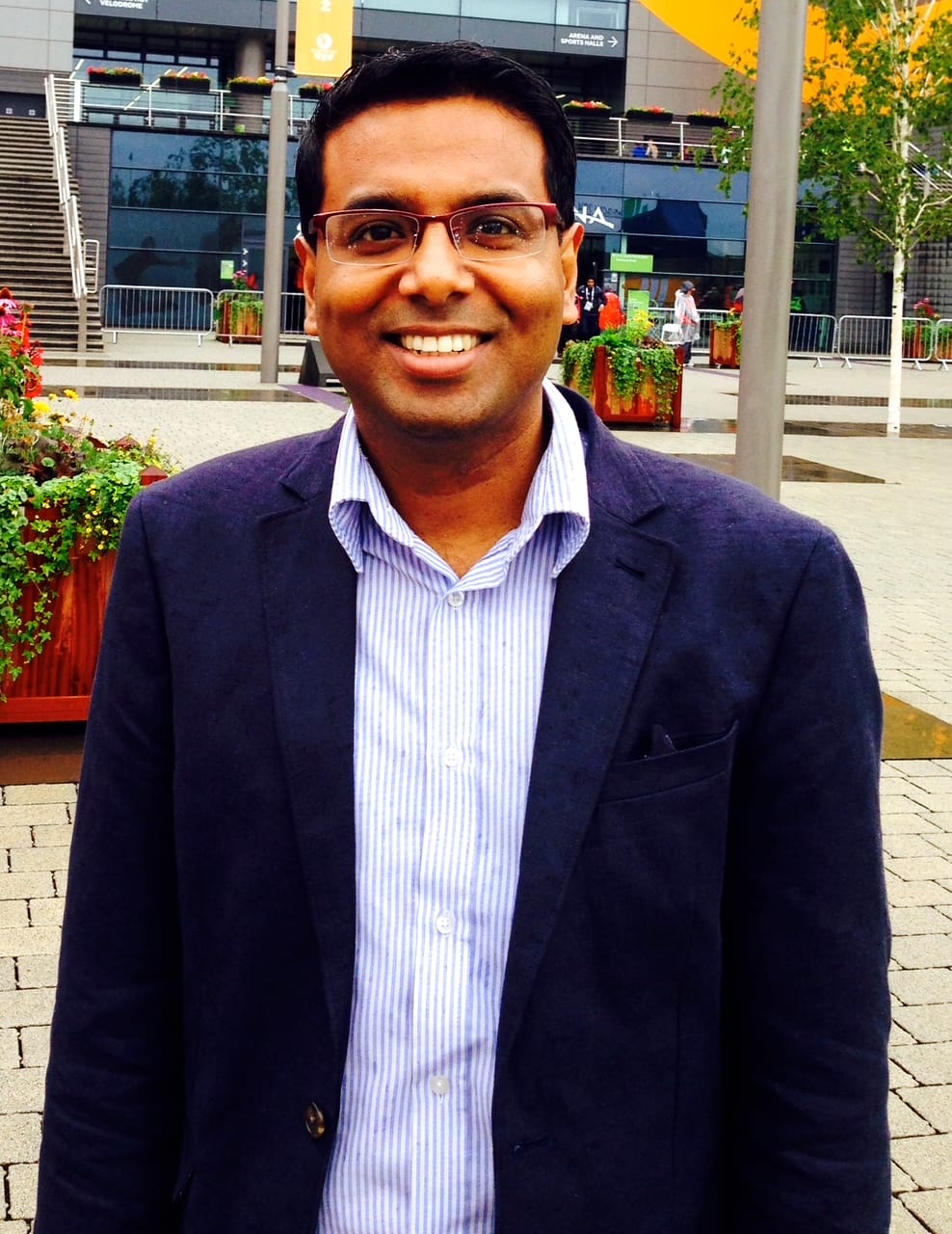Ask an expert?
My name is Hari Chandrashekar. I currently work as a Consultant in Stroke Medicine at Leighton Hospital, Crewe and Royal Stoke University Hospital, Stoke-on-Trent. I continue to do Acute Medical on-calls at Leighton Hospital.
I did my Acute Medicine training from 2007 to 2012 in the East of Scotland Deanery. I was one of the very first Acute Medicine trainees to complete Stroke training as a specialist skill.
From 2013-2019, I worked as a consultant in Stroke and Acute Medicine in Ninewells Hospital, Scotland. Five years ago, I moved to England and currently live in Staffordshire with my wife and two children.
When I am not at work, I enjoy watching sports like cricket and football and I love going on long walks.

What got you interested in Stroke as a Special Interest?
Stroke is a sudden life changing event that can result in lasting disability. As a part of my Acute Medicine training, I did a three-month rotation in the stroke ward. I found it very satisfying and fulfilling to see a patient with significant weakness or speech disturbance fully recover and walk out of the hospital following hyperacute stroke intervention. This is what attracted me to take up stroke medicine.
Stroke Medicine as speciality offers a unique mix of managing hyperacute, acute and rehabilitation patients. As a Stroke Consultant, one day you could be doing hyperacute stroke on-call, rapidly assessing and managing stroke patents in the Emergency Department, delivering thrombolysis, and arranging for an urgent mechanical thrombectomy. On another day you could be leading an MDT Meeting discussing stroke rehabilitation patients or doing a TIA Clinic, helping prevent patients having a stroke.
Stroke Medicine is a multidisciplinary speciality where you work closely with allied health professionals to provide the best possible treatment and outcome for the patient.
Stroke Medicine is a rapidly developing specialty with plenty of research happening. If you are interested in research, then choosing stroke medicine as a specialty will provide excellent opportunities to take part in research.
How did you train in Stroke and other avenues available?
I had to take a year out of programme to complete a 12-month specialist training programme in Stroke Medicine. To prepare for this I did a three-month rotation in the stroke unit as well as a three-month rotation in Geriatrics/Rehabilitation which was helpful.
Currently, AIM Trainees will have to complete a year of dedicated Stroke Medicine training. This could extend their training by up to 12 months. During dedicated Stroke Medicine training trainees could request that the year of stroke training provide credit for the ‘3-month core programme’ in the AIM curriculum plus 3 months’ for AIM. If granted, training may only be extended an additional 6-months.
During the stroke training year trainees will get training in three main aspects of stroke care. Managing the care of acute stroke patients, including hyperacute stroke care and cerebral reperfusion strategies. Managing the primary and secondary prevention of Stroke and Transient Ischaemic Attack. Managing early and late stroke rehabilitation in hospital and community settings.
On completion of stroke training AIM trainees with get CCT in AIM and a Sub-Specialty CCT in Stroke Medicine. Trainees must pass the AIM Specialty Certificate Exam and there is no separate Specialty Certificate Exam for Stroke Medicine.
What challenges did you face?
I was one of the very first trainees in acute medicine to take up training in stroke medicine. At the time this was something that had not done previously in the Deanery and there was no structured training programme set up. However, the consultants in the stroke unit and my Acute Medicine TPD were extremely helpful and supportive and together they managed to develop a structured 12-month stroke training programme for me.
Currently majority of the tertiary stroke centres offer a well-structured 12-month stroke medicine training and this should not be a challenge.
From a clinical aspect one of the challenges as an acute medicine trainee taking up stroke training was managing long-term continuing care of stroke rehabilitation patients which was different to working in the acute medical unit.
How does/will this fit into your consultant working?
Taking up and completing stroke medicine training has opened multiple avenues for me. Being able to do sessions in stroke and acute medicine has provided me with flexibility when it comes to job planning. Through the years I have always done sessions in both specialities.
I have had leadership roles in Stroke Medicine and helped set up the thrombectomy services in Dundee. I am currently Clinical Lead for the Stroke Service at Leighton Hospital.
Training in stroke had given me the opportunity to be actively involved in research. Through the years I have been local principal investigator for several multi-centre stroke trials in the hospitals that I have worked in.
Do have any tips for trainees interested in stroke medicine?
If you are interested in stroke medicine, then at the very beginning you need to have a discussion with your TPD to inform your interest. Try to get a rotation in the stroke unit or spend time in the stroke unit to get an understanding of the specialty and see if you like the specialty.
Try to attend the British and Irish Association of Stroke Physicians (BIASP) trainees’ day. This is a particularly useful day for stroke trainees and trainees interested in taking up stroke medicine training. It is also a good idea to attend some training on basics of brain imaging for stroke.
You need to discuss your intention to take up stroke training with the deanery and make plans for a year out of programme to complete the stroke training.
